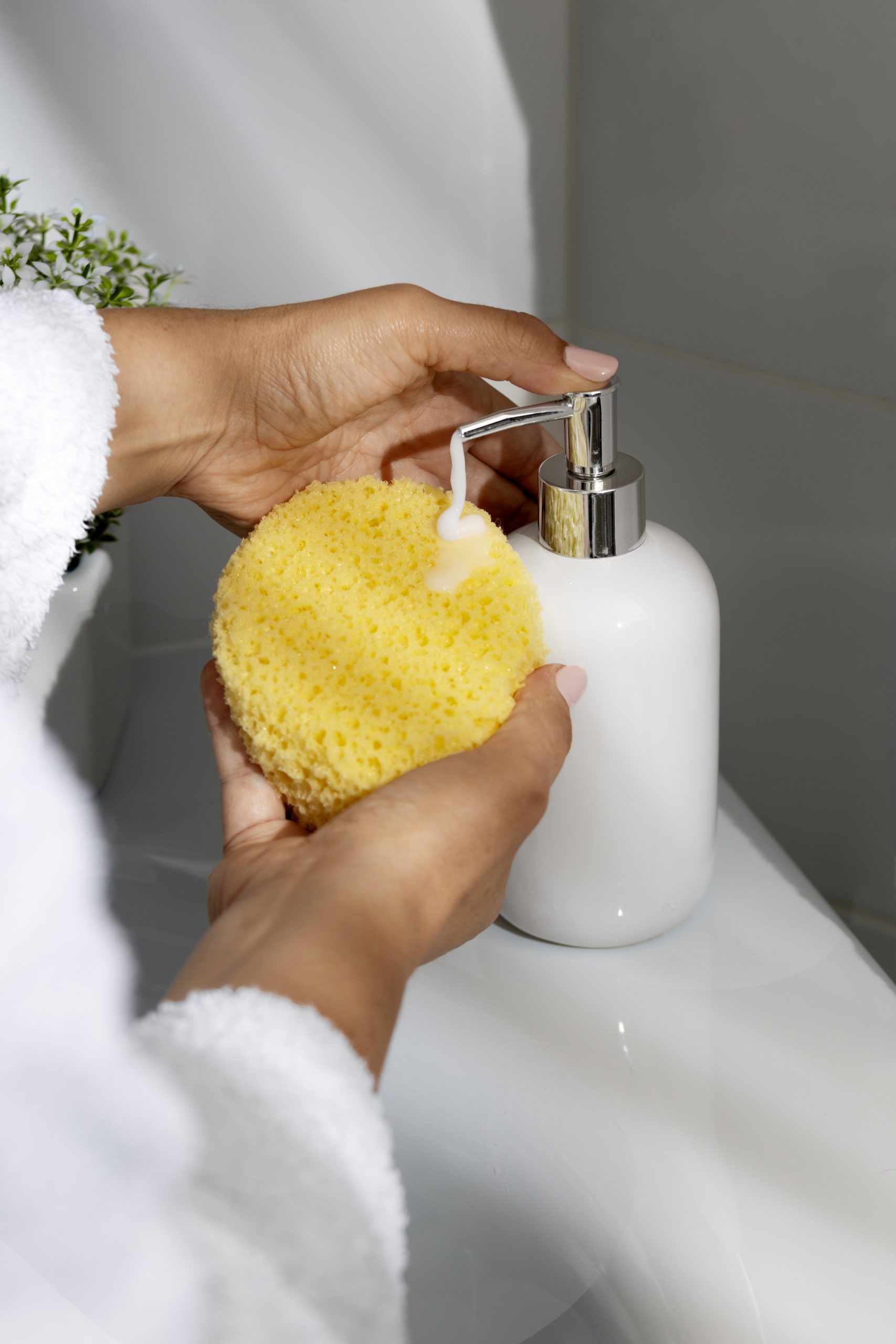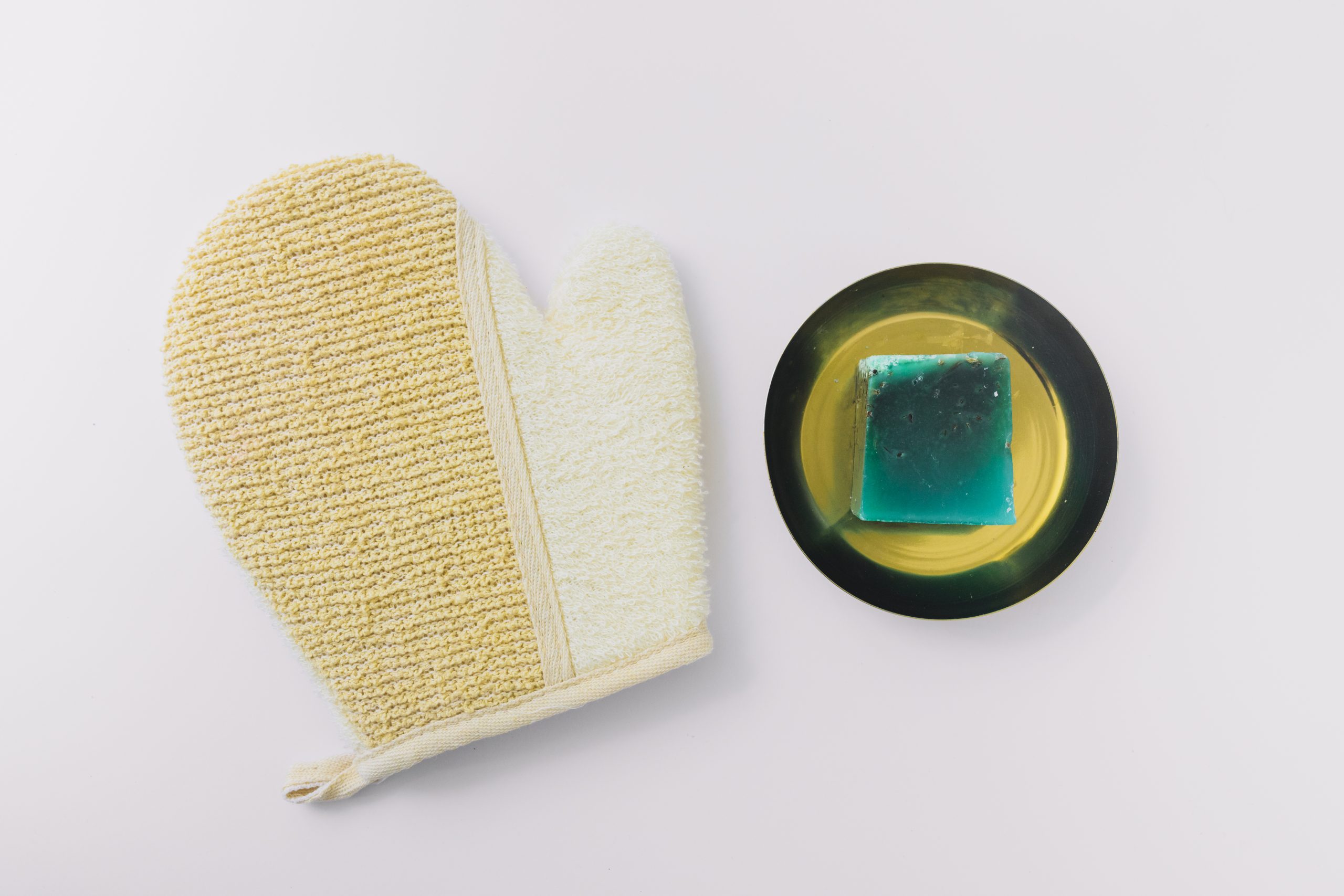Bathing is one of those everyday habits people in our society rarely question. Using a sponge often feels like the only way to truly get clean. Yet dermatologists caution that this routine, whether with raffia sponges or modern mesh loofahs, could be quietly damaging the skin.
Skin health experts have warned against excessive sponge use, explaining that repeated scrubbing can weaken the skin’s natural barrier and increase the risk of irritation, dryness, and infections.
A consultant dermatologist at the Lagos University Teaching Hospital (LUTH), Dr Otrofanowei Erere, explained in an interview with Guardian Life that the risks of sponge use depend on often-overlooked factors such as texture, technique, and pressure.
“Sponging seems simple, but it depends on what type of sponge you use. Is it a bath towel, raffia sponge, or bath gloves?
“The point of sponging is gentle exfoliation, but depending on the texture, daily use can be harmful. Even a soft towel, when used with too much pressure, can become like a scrubbing brush,” she said.
Her warning challenges a long-held belief in many households, where scrubbing hard is seen as proof of freshness.
“Some people think the harsher they scrub, the cleaner they get. That is not true. It is the soap or cleanser that cleans you, not the sponge,” she stressed.
According to her, the real danger lies in what she described as micro-traumas, tiny tears in the skin that cannot be seen with the eyes. These small wounds allow germs and harmful organisms to enter the body more easily.
She also warned that daily sponging strips the skin of natural oils, opens pores unnecessarily, and leads to dryness, itching, and irritation.
Impaired skin barrier
Research has backed these concerns. A study published in the Journal of Tissue Viability in 2024 revealed that the amount of pressure used in bathing has a major effect on skin health.
The researchers observed that “ordinary pressure applied for two consecutive days impaired skin barrier recovery compared with weak pressure.” In other words, scrubbing too hard slows down the skin’s natural ability to repair itself.

On her part, consultant physician, dermatologist and venereologist, Dr Folakemi Cole-Adeife of the Lagos State University Teaching Hospital, Ikeja, told the News Agency of Nigeria (NAN) that the skin does not actually need daily scrubbing to remain clean.
“A lot of people cannot have their baths without sponges, but the truth of the matter is that you actually don’t need to bathe with sponge too frequently or daily,” she said. “Even if you need to exfoliate your skin with a sponge, which is what the mechanical abrasion of the sponge does, you don’t need to do it every day.”

‘Micro tears’
“Using sponge to scrub your skin frequently can strip it of natural oils and create micro-tears or micro-trauma in the skin. It can also introduce bacteria and other micro-organisms into the skin,” Dr Cole-Adeife explained.
She added that frequent sponge use can worsen itchy skin. Her advice: take a break if you are battling irritation. “It is not absolutely necessary to use sponge daily, but if you do not feel clean without it, limit use to once or twice a week, or at most three times,” she said.
Erere also addressed the Nigerian reality of bathing twice daily due to the hot climate.

She noted that not every bath requires a sponge. A full sponge bath in the evening after exposure to sweat, dust, and grime is reasonable, but a simple morning rinse with soap and water is enough.
“If you bathe twice a day, it is better to do a full bath with sponge and soap in the evening after a long day. In the morning, a simple rinse is enough. What matters most is to always moisturise after bathing. That is non-negotiable,” she said.

Both experts stressed the importance of moisturising after every bath. When the skin loses water through constant scrubbing, it becomes dry, itchy, and fragile. A good moisturiser or body oil helps restore balance, keeping the skin barrier strong and healthy.







